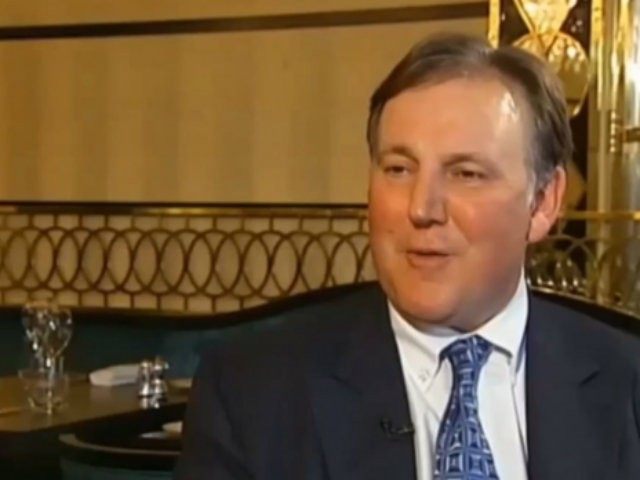Well, duh. Lord Fink pursues ordinary tax avoidance. It is his right as long as he remains within the law. Who are we to doubt his word that he does anything but without evidentiary proof to the contrary?
Tax avoidance is a legal way to minimise a tax bill. It involves using accepted means to pay the least amount due. This is different from tax evasion which uses illegal methods to achieve the same outcome.
Lord Fink is therefore perfectly fair to say in his own defence after being singled out by Ed Miliband for special attention: “The expression tax avoidance is so wide that everyone does tax avoidance at some level.”
Of course they do.
So what sparked Ed Miliband to make his extraordinary ‘dodgy’ claim in Westminster where he knew he was protected by Parliamentary privilege?
The politics of leftist envy. It is a central plank on any Labour platform that the rich have made their money at the expense of somebody else and therefore should be regarded with deep suspicion.
It goes some way to explaining why Labour under Miliband is struggling to connect with the business community. Labour keeps talking and nobody listens to a party so fiercely committed to the ethos of tax and spend and tax again.
Sneering at the wealthy is the accepted world view of unreconstructed socialists, something they learn at the breakfast table, all in the name of fairness. In fact sneering at pretty well everyone is what the left does with superb precision – need I mention white van man?
As for Ed Miliband’s counter claim of tax purity, that is a matter for him and HMRC officials.
It’s fair to say anyone who pays a penny more in tax than they have to is a blithering idiot.
The late Australian entrepreneur Kerry Packer made that point when he was called to answer questions on his business affairs by a Parliamentary inquiry in the 1990s.
“I am not evading tax in any way, shape or form,” Packer said. “Now of course I am minimizing my tax and if anybody in this country doesn’t minimize their tax they want their heads read because, as a government, I can tell you you’re not spending it that well that we should be donating extra.”
That’s the trouble with paying any more tax than you have to. Governments do not spend what they get well: giving more simply emboldens them to give it away gratis. No strings attached.
Witness David Cameron’s controversial pledge to spend 0.7 per cent of the UK’s income on foreign aid.
Not spent here, where it can be used to best effect, but abroad.
Liberal Democrat Ed Davey’s energy and climate change department is an example of where your money goes once the government gets its hands on it. The department oversees hundreds of millions of pounds of grants designed to help poor and middle-income countries curb their carbon emissions.
In 2014 the department gave £15m to cattle ranchers in Colombia, the world’s 30th richest country, to help cut flatulence in cows. It has also funded projects in Turkey, India and Chile, which are enjoying rapid economic growth.
The Department of Health, the Department for Work and Pensions, the Home Office and the Department for Culture, Media and Sport also have spectacular aid budgets running to tens of millions of pounds.
The DWP’s money goes to such priceless outposts of bureaucratic officialdom as the International Labour Organisation, which promotes workers’ rights, while the health department’s share goes to the World Health Organisation.
Did you know the UK is giving India another quarter of a billion pounds in aid by 2019 – the same amount New Delhi spent to launch its first mission to put a man on the moon? The massive donation comes via the Department of International Development (see below) despite a British government promise to end financial aid to India by this year.
There’s plenty more where that came from. He are more illustrations of how UK taxpayers fund pet overseas projects as determined by civil servants:
Department for Culture Media and Sport
Program to make PE lessons more “meaningful and exciting” in 20 countries including Malaysia, South Africa, Brazil and Turkey, following London 2012 Olympics.
Cost: £8.35m over four years
Department of Energy and Climate Change
Program to reduce “greenhouse gas emissions from cattle ranching” in Colombia.
Cost: £15m over four years
Department of Energy and Climate Change
Renewable energy and low-carbon transport projects in Chile, India, Nigeria and Turkey.
Cost: £75m.
Foreign and Commonwealth Office
Britain contributes to Europeaid, the EU’s aid program. Projects including equipping border guards in Belarus, a dictatorship, and funding a waterpark in Morocco.
Cost: £1bn a year
Department for International Development
Yegna, a girlband dubbed the Ethiopian ‘Spice Girls’, is intended to empower teenage girls through song.
Cost: £3.8m a year.
Department for International Development
Trademark Southern Africa, intended to boost commerce, was recently shut down by after watchdogs found officials earning more than £100,000 and cash being administered by the corrupt Zimbabwean regime.
Cost: £100m.
Lord Fink, the Manchester-born son of a grocer, is an entirely self-made man. Everything he owns comes from his own effort. There has been no hand out, no leg up, no gilded entry into the sort of world that so many career politicians from all parties can often lay claim to.
Fink should be applauded, not jeered, in the way Ed Miliband did when he thought he had his very own gotcha’ moment with the former Conservative Party treasurer.
Just remember whenever Labour Party members start talking about “fairness” you know it means only one thing. They want more of what you’ve got.

COMMENTS
Please let us know if you're having issues with commenting.